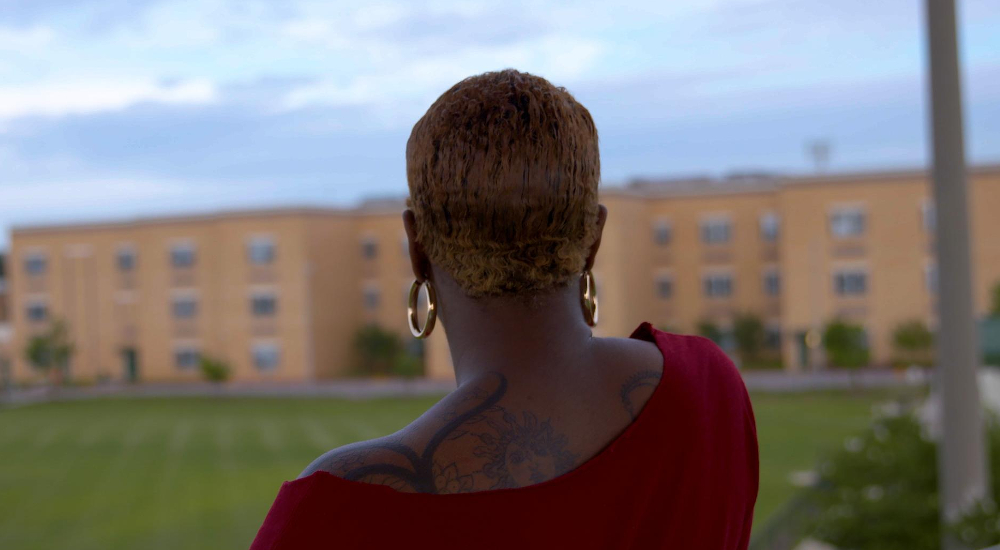We all saw that horrifying video. A police officer arrives at a classroom. He flips a student's desk, then forcibly removes her. But what happened after? And how does this incident reveal even more horrifying realities about law enforcement and racism in South Carolina? Spring Valley explores all that, but occasionally goes too wide.
Both the student who was assaulted and the student who filmed the incident were charged with "disturbing school," a vague and archaic law that was rewritten in the 1960s to punish students protesting for civil rights. Unsurprisingly, this law and arrests made in schools disproportionately affect Black students.
But some people refuse to see it that way, like safety resource office Ben Fields, who made the arrest and assaulted the student. Director Garrett Zevgetis gives Fields ample opportunities to apologize and share his point of view. But every time he opens his mouth, he reveals his ignorance, his bias, and his penchant for playing the victim. As one activist who regularly meets with him puts it, he can't see the difference between accountability and blame. A card at the end revealing where he ended up is one of the most disturbing moments in a film this year.
Still, there are some moments of hope. Seeing the students who were mistreated by the system succeed, and activists rally to get police out of schools, means the situation isn't completely bleak.
Crucially, Zevgetis puts the incident in context of South Carolina's racial issues, as well as the continuum of police violence that's seen increased attention in the last decade thanks to the use of cell phone video. But the film makes one misstep, in trying to connect the suffering of African-Americans to the depleted geography around Columbia, South Carolina. Seeing images of former rice paddies tended to by slaves is critical for the film's thesis, but trying to pull in hurricane-battered structures and thorny bushes is one thread too many.
Spring Valley can often be an infuriating watch, as people spout off that a grown man flipping and dragging a child out of a classroom is "just doing his job" and the fault of the student. But the filmmaker gives everyone their chance to speak, making this one of the most well-rounded and vital documentaries in recent years.

